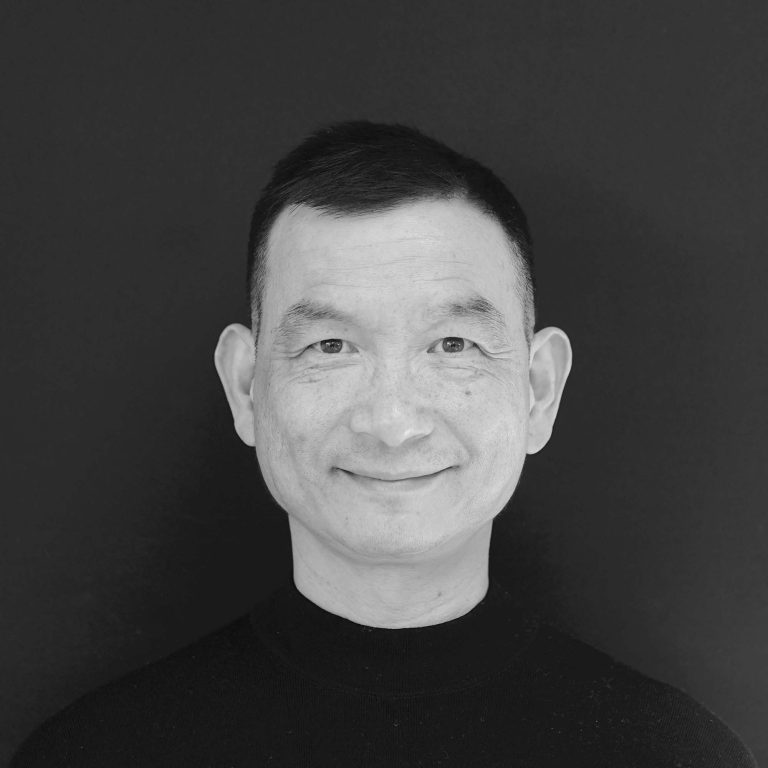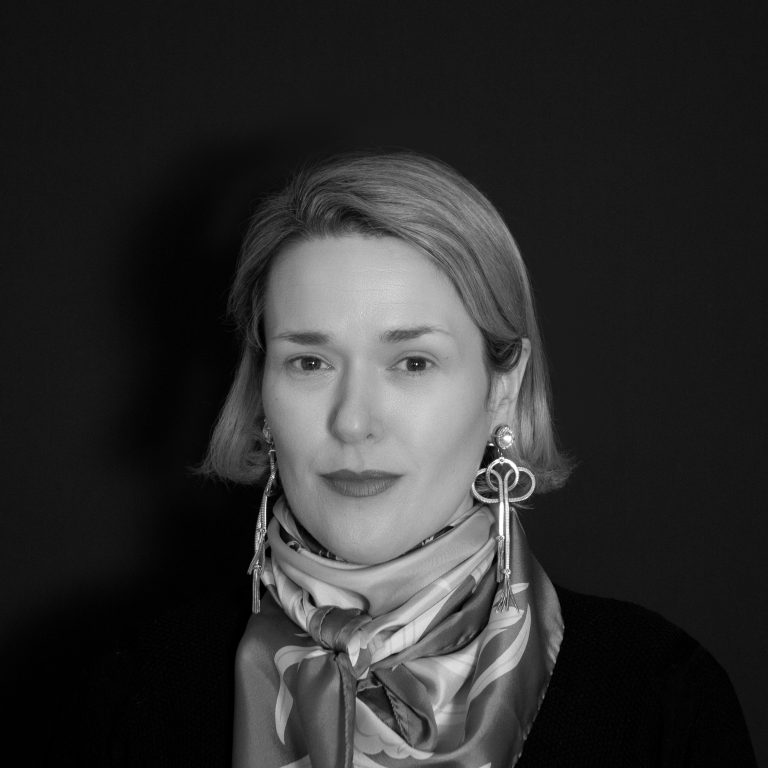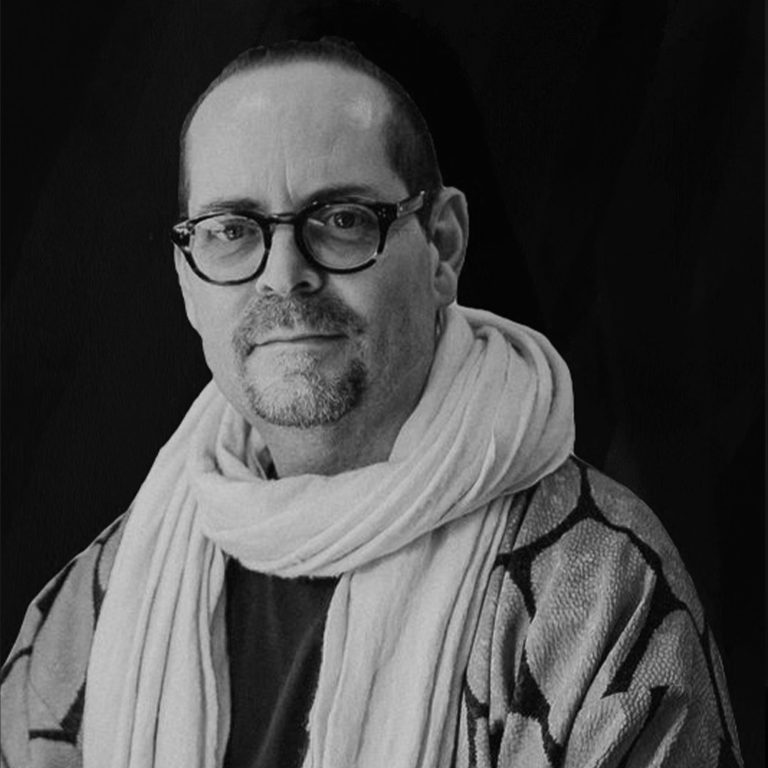BA (Hons) Fashion
Led by award-winning designer Holly Fulton, our Fashion BA (hons) course helps students cultivate a distinctive design identity and to develop creative and practical fashion skills. Our expert team of core staff are complimented by a wide range of visiting guest lecturers from global brands to independent designers. At CSVPA you will interact with incredible practitioners ranging from stylists, creative directors, photographers, milliners, surface decoration experts and catwalk designers, all visiting the studio regularly to share their knowledge.
Our students also learn through intensive individual and group tuition, workshops and industry focused projects. We place a strong emphasis on the technical; ensuring you have a solid grounding in garment construction gives you the basis on which to let your imagination run wild. Working alongside highly experienced technical experts and pattern cutters, you will cover a full range of techniques from pattern drafting to drape and high-level finish. We strive to ensure our students are equipped with the expertise and knowledge to fully realise their creative vision.
Our final year students will present their work at an industry-focused showcase in central London and may also participate at Graduate Fashion Week.
WHAT TO EXPECT FROM THIS COURSE
YEAR ONE
In your first year you will develop key design skills and realise your designs from idea to garment through a mixture of classes and workshops including sewing, pattern cutting, digital skills, illustration, surface design and presentation skills.
YEAR TWO
In the second year you will first focus on creative commerciality through projects with practicing designers and brands. In the second semester you will start to develop an individual design identity with projects to inspire experimentation and innovation. Typically, you’ll explore embellishment, print, surface decoration, tailoring and creative silhouette development, this will assist in preparation for your final year.
YEAR THREE
In your final year your individual design interests will be explored and articulated through the presentation of a final collection. You’ll also take ownership of your portfolio, learning how to present it to a professional level and developing a self-promotional perspective. Final year students also have the opportunity to participate in a high-profile Graduate Show in London.
THE AWARD
Upon successful completion students will be awarded with a BA(Hons) Fashion accredited by Falmouth University
“The BA course has pushed me to develop further than I previously imagined I could have done! I have deeply enjoyed my 3 years in Cambridge and have learnt so much more than I expected possible in such a short
space of time.”
George – BA (Hons) Fashion student
73%say staff value students views and opinions about the course
Data for courses in Design studies at Cambridge School of Visual and Performing Arts
100%of students say teaching staff have supported their learning well.
Data for courses in Design studies at Cambridge School of Visual and Performing Arts
75%in work or doing further study 15 months after the course.
Data for courses in Design studies over two years at Cambridge School of Visual and Performing Arts
VIDEO
HIGHLIGHTS
OVERVIEW
Course Location
Cambridge
Course Length
3 years (6 semesters)
Course Start
September
Tutor Support
Specialist staff support available 5 days a week
Studio Access
Students have access to our studios 7 days a week, from 8:00 am to 8:30 pm, Monday to Friday and 9:00 am to 5:00 pm at weekends.
Awarding Body
Falmouth University Awarding Body
English Language
Up to 5 hours per week if required
How your Work is Assessed
Practical projects and written assignments
Guest Lecturers
The course is enriched by an extensive program of lectures and workshops given by a variety of creative professionals
Your Space
Each of our students have their own workspace and are provided with their own mannequin, calico for toiles, pattern cutting paper and card. We also provide free printing up to A3 colour.
How We Teach
Throughout this course students will be taught through specialist workshops, guest lecturers, regular one-to-ones and group tutorials.
Excursions
Local and national educational trips to studios and galleries
Progression
Fashion designer, pattern cutter, creative director, stylist, textile designer, garment technologist, fashion PR
Careers
90% of our students were in work 6 months after graduating in 2019. Recent graduates received national press coverage after showcasing their collections at Graduate Fashion Week.
UCAS Institution Code
C06
UCAS Course Code
W230
ENTRY
Age
18 years +
Educational Level
A pass at UAL Level 3 Foundation Diploma or Extended Diploma or equivalent or successful completion of High School (Year 11 or Year 12 depending on the native country) is needed or 2 x A levels equivalent to 72 UCAS points and 1 GCSE or equivalent at grade 4 or C, preferably in a relevant creative subject.
Students who do not meet these entry requirements will still be considered on their own individual potential to succeed.
English Level for International Students
IELTS 5.5+ (with no element below 5.5)
Portfolio
A portfolio of work showing personal work, schoolwork, finished and prepared is required for this course. Your portfolio is the chance to show us your skills and your passion. Download our guide to see what we look for in a portfolio.
STRUCTURE
YEAR 1
This module provides an introduction to the key processes involved in fashion design. Typically the module begins with experimental quick fire projects and process-based workshops.
The workshops involve activities which introduce you to key drawing, research and design skills for example: visualisation of ideas, photoshop, technical drawing in illustrator, surface design/digital print, understanding fabrics, fashion project development, analysing markets, trends and influences, photography and presentation skills. You will begin to work in 3D on the stand, developing your design ideas by draping fabric and deconstructing/reconstructing garments.
You will develop your work in sketchbooks and present a final portfolio of work that will be used for assessment.
The aim is to introduce research skills as the basis for creative design using a variety of resources with a focus on appropriate methods of recording, collating and generating imagery.
To enable you to produce a series of design sketchbooks which reflect research, markets, trends, development of ideas and innovative design.
To develop your presentation skills through illustration, photography and digital media.
This module introduces you to the technical skills of pattern cutting, draping and making clothes. These are fundamental skills which will enable you to cut and make a variety of woven designs.
You will start with the basics and be shown how to use all the machinery safely. You are expected to document and evaluate your work and take notes in your workshops. This work should be presented neatly in technical folders which will form your submission at the end of the module and an on-going reference guide.
The aim is to provide you with a core knowledge of basic pattern cutting and manufacturing skills and their application to fashion garments and industry practices.
You will be introduced to the use of industrial manufacturing machinery and equipment and the safe working practice of the cutting room environment.
You will also produce a technical folder of sample patterns and sewing examples for future reference.
This module further explores the process of design development in the fashion industry.
You will practice fashion design research and innovative design development through project briefs and design competitions, with final outcomes that vary from presentation of boards in a crit to finished garments.
You will be encouraged to develop your aesthetics in relation to a target fashion consumer/market and realise your design ideas in 3D using skills you have learnt in the Introduction to Technical Skills module and in conjunction with the Technical skills module.
The aim is to develop research and design skills related to a set brief, showing understanding of the context of that brief and producing a relevant outcome.
To enable you to produce a series of design sketchbooks which reflect research, markets, trends, development of ideas and innovative design.
To creatively solve problems whilst developing work from 2D to 3D outcomes.
This module teaches you further skills of pattern cutting and making garments to industry standards. You will learn the basics of working with stretch fabrics and start learning CAD/CAM – computer based pattern cutting. You will begin to pattern cut and make your own designs in conjunction with the Design Projects module; translating your design idea to a fully annotated pattern and selecting appropriate fabrics and methods of manufacture for your final garment. You are expected to document and reflect on your work in technical folders and present finished toiles and garments on hanger.
The aim is to introduce further pattern cutting and manufacturing skills and their application to fashion garments and industry practices. To introduce basic CAD/CAM pattern cutting methods using appropriate technology and to produce a technical folder of sample patterns and manufacturing examples for future reference.
This module provides an introduction to a critical and contextual approach to the study of fashion and visual culture. It will develop your skills in research, presentation, analysis and communication to enable you to both conceive and effectively articulate your ideas.
A lecture and seminar series introduce you to key historical events and movements in visual culture which have impacted on creative practice, to establish a foundation for both the evaluation and discussion of fashion. You will be exposed to a wide range of social, political, cultural, theoretical and aesthetic contexts which draw parallels and thematic links between the historical and the contemporary. This will encourage you to reflect critically and to begin to locate your own work in a broad contextual framework.
A series of workshops and tutorials will also introduce you to key study skills and academic protocols. These will extend your competence in formal essay writing and develop your skills in critical evaluation and textual and visual analysis.
The aim is to demonstrate how practice relates to a broader context of art and design, to acquire and apply a developing range of research, presentation and communication skills and to encourage an enquiring and reflective approach to practice.
YEAR 2
The emphasis of this module is on design in relation to market and consumer; students will begin to place their work in a commercial context and present their work in a professional manner.
By exploring and researching business practices, sustainability and culture within fashion, they will start to understand how this relates to consumers and, in turn, effects and informs markets and designers. Using this information, students will design ranges and make garments in response to a ‘live’ industry or competition brief, answering the needs of a specified consumer.
Covering range planning, customer profiling and brand identity, students will research and document retail environments and begin to define categories of fashion and consumers. They will learn how to create work to a professional standard using technical flats, exploring costings and fabric usage and generally packaging their work to a high standard.
The aim is to use cultural, creative and market research to inform design suitable for an identified consumer, clearly answering a detailed brief, to understand and identify working practices within the fashion industry and to learn to present work professionally to an industry acceptable standard.
This module covers advanced pattern cutting, manufacturing and CAD/CAM skills. You will develop further skills such as outerwear, tailoring, corsetry, draping and experimental techniques. There will be workshops in advanced machining skills, couture sewing techniques and an introduction to new materials. There will be further workshops to develop your CAD/CAM skills; typically pattern manipulation/grading. You are expected to compile a technical folder to document and reflect on your work as you progress through the module.
The aim is to develop advanced and experimental pattern cutting skills, to engage in advanced machining skills including use of new materials and couture sewing techniques and to introduce advanced use of technology in design and manufacture using CAD/CAM.
In this module projects will cover a range of developing professional design skills and experimentation in a 2-dimensional and 3-dimensional format. The design projects will require enhanced research and experimentation techniques, linked to a professional finish and the use of technology in both construction and presentation of a portfolio.
The emphasis on design innovation will allow students to confidently explore design and illustration styles and allow experimentation with fabric and silhouette. The module will typically include experimental pattern cutting, draping and a variety of garment construction and surface decoration techniques.
Typically, students will also learn strategies for carrying out research into current trends and colour, building a body of evidence on which to formulate an opinion and personally forecast predictions. Colour and trend prediction will be used to enhance the design process, better understand markets and encourage design innovation. Presentation techniques to enable students to communicate their work both visually and verbally will be an indicative feature of the module.
You will be introduced to professional strategy skills that will assist in developing a portfolio in preparation for possible work placement applications that may commence at the end of the semester. Work placement is not an assessed part of the course but is fully supported by staff as being hugely beneficial to the students’ professional development.
The aim is to further develop and refine design skills utilising a wider technical skillset, to allow the student experimentation with techniques, enhancing design development processes in preparation for the final collection and to allow the student to further develop and refine skills in researching and designing for specific market levels.
Building on ‘Fashion in Context’ (CF405), this module further investigates the historical, social, cultural, ethical and global contexts in which contemporary practice occurs. It introduces theoretical perspectives in order to develop the ability to discuss your own and others’ practice within a contextual, critical and academic framework.
Drawing on art and design history and theory, cultural, social and media studies, lectures introduce theoretical approaches to practice. In addition, seminars provide a range of opportunities to explore theoretical texts germane to practice. Workshops covering research methodologies will introduce a range of methods of enquiry.
The aim is to analyse the interplay of historical, social, cultural and global contexts that shape practice, to apply and evaluate research skills for the development and contextualization of practice and to make informed use of a range of communication skills adopting an enquiring and reflective approach.
YEAR 3
This is start of your final major project, the creation of a fashion collection that is the culmination of all you have learned on this undergraduate degree. This module will cover the main design stages of your collection, including concept development, design development and pattern cutting and experimental toiles. Students will also consider trend forecasting, range planning and fabric and trim sourcing.
The module typically begins with experimental short projects to stimulate a critical, imaginative and individual approach to fashion design, followed by extensive research and design development of the final major project: the final collection.
Following acceptance of the outline concept by your tutors, you will work on design development. At design review, a line-up of design drawings will be presented to your tutors and peers. Once approved, patterns and toiles will then be developed, alongside fabric sourcing, colours and surface decoration samples.
Towards the end of the module, you will present a more detailed line-up along with experimental toiles, technical drawings, samples and fabric choices which will be indicative of your core collection, designs and visuals. Students will evidence market analysis and demonstrate an awareness of the collection’s place in the contemporary fashion market.
In addition to the presentation of the outline concept, design review, and on-going supervision, you will be required to attend tutorials in which you will report on the progress of your project to supervisory staff.
You will record the developmental progress of your collection in visual, written and other forms, capturing the technical development and evolution of the project.
The aim is to enable you to explore in-depth processes from research and design development through to prototype presentation, demonstrating confidence in your own design practise. Using the collection as an articulation of your personal interests, strengths and future career considerations, whilst at the same time placing it within the contemporary fashion market.
You will also demonstrate and advance your pattern cutting, technical and designs skills in transferring 2D design work into 3D toiles, creating developmental prototypes from detailed drawings. You will operate with a mature and reflective attitude, mirroring current (or demonstrating future) industry practice, studio working patterns and appropriate time management.
In this module you complete a dissertation. This requires you to work independently; to consolidate, exercise and deploy knowledge and skills acquired in CF404 ‘Fashion Context’ and CF504 ‘Fashion Theories and Methodologies’.
You will focus in depth on a specific and discrete topic in a given field; to develop and sustain a thesis, within a guiding theoretical framework.
You will discuss ideas with your supervisor to determine the specific subject and development of the research topic. Through individual and / or group tutorials you determine the nature, form, breadth and depth of your independent study.
You will then draft and produce a substantial body of work.
The aim is to apply research, enquiry, analysis and communication skills to enable the origination, development, evaluation and dissemination of ideas, to encourage a critical understanding of the historical, social, cultural and global contexts in which practice is located and to develop confidence, critical judgment, self-reliance and individual responses to learning that will enable the ongoing acquisition of skills and knowledge to be applied to a diverse and evolving workplace.
In this module you will complete your graduate fashion collection, based on preparation completed in the previous module. The final Collection will be the production of final garments to create a minimum of 6 outfits, including the sourcing of fabric and trims. You will liaise with technical staff to achieve the outfits in 3D form. Students will complete a collection of six outfits minimum, suitable for a contemporary fashion market, finished to a professional standard and ready for presentation at a fashion show or equivalent.
Students will collate and present a technical dossier of the collection, detailing all stages of design and development of each garment with particular emphasis on patterns, technical drawings, garment costings, prototype development and fabric sourcing. The teaching team retains the right to withhold items from the fashion show or equivalent if it is agreed they are unsuitable.
The aim of this module is to understand the importance of garment finishing and specialist manufacturing techniques, using the most appropriate and innovative fabrics and trims, to create a professional and industry-ready collection.
You will address project and time management skills in the production of all garments to an industry standard, demonstrating the ability to create a detailed garment specification using appropriate technology to create a professional standard document.
You will be able to reflect upon all that you have learnt, articulate your strengths and weaknesses and begin to understand and plan a future career pathway.
Projects within this module will support all aspects relating to the presentation and promotion of your final collection including illustrating the three-dimensional collection in two-dimensional form.
Using appropriate technology and contemporary methods, students will produce a creative and comprehensive professional portfolio, which will ultimately be used to advance future career and academic aspirations.
You will also demonstrate an understanding of fashion promotion, including styling, look-book creation, photography, self-branding and marketing. An online presence will be created through social media, websites or an online portfolio.
The aim is to develop the ability to create self-promotional materials and to undertake self-marketing activities within your chosen field, demonstrate an understanding of professional portfolio presentation using technology and contemporary methods and develop the ability to engage in fashion promotional activities such as illustration, styling, look-book creation, photography and online marketing.
FACULTY
ADDITIONAL COURSE COSTS
View the Tuition fees for the BA(Hons) Fashion course.
At CSVPA all students have access to a fully equipped fashion studio with cutting tables, industrial machines and steamers. Basic materials for pattern making and mocking up (pattern paper, calico, thread, etc) are supplied. In addition, we have a large collection of donated fabric, haberdashery and materials which students can use for their projects.
In addition to the studio, students have access to IMACs running Adobe Creative Suite, scanners, regular and large format printers. Printing is free for all students, and materials are supplied.
Students have access to video and photography facilities, and basic materials for these are supplied.
All academic resources (books, software access, other research materials) are supplied as part of the course. Students have access to Office 365 and centralised storage of files on OneDrive.
The costs of materials for your work will depend heavily on the medium you choose to work in, and the format and scope of the work you produce.
Below are the anticipated additional costs that you are likely to incur. Costs are for each year.
| Relevant Items | Cost Indication | Total |
| Visits to London for shows, exhibitions, etc, twice per year. | £30 for train fare (less if you have a rail card) Average £10 entrance fee. | £80 |
| Sketchbooks, layout pads | Up to £15 each | £30 |
| Markers, pens, pencils, etc | Up to £100 | £100 |
| Basic sewing kit (scissors, rulers, chalk, etc) | Up to £150 | £150 |
RELATED COURSES
TALK TO US
Do you want to find out more about CSVPA? Talk to our student advisors now.
















